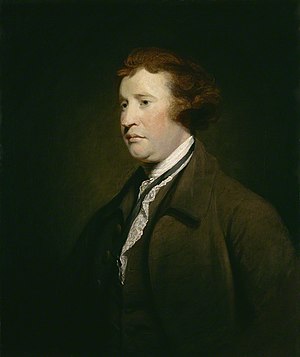
Woman is not made to be the admiration of all, but the happiness of one.
Share this quote:
The human mind is often, and I think it is for the most part, in a state neither of pain nor pleasure, which I call a state of indifference.
Share this quote:
No power so effectually robs the mind of all its powers of acting and reasoning as fear.
Share this quote:
It is ordained in the eternal constitution of things, that men of intemperate minds cannot be free. Their passions forge their fetters.
Share this quote:
Among a people generally corrupt, liberty cannot long exist.
Share this quote:
Reading without reflecting is like eating without digesting.
Share this quote:
Those who dont know history are doomed to repeat it.
Share this quote:
The nature of things is, I admit, a sturdy adversary.
Share this quote:
People will not look forward to posterity who never look backward to their ancestors.
Share this quote:
It is our ignorance of things that causes all our admiration and chiefly excites our passions.
Share this quote:
Society is indeed a contract ... it becomes a participant not only between those who are living, those who are dead, and those who are to be born.
Share this quote:
Society is indeed a contract. ... It is a partnership in all science; a partnership in all art; a partnership in every virtue, and in all perfection.
Share this quote:
If we command our wealth, we shall be rich and free. If our wealth commands us, we are poor indeed.
Share this quote:
The only thing necessary for the triumph of evil is for good men to do nothing.
Share this quote:
All That Is Needed For Evil To Succeeded, Is For Good People To Do Nothing
Share this quote:
All that is necessary for evil to succeed is that good men do nothing.
Share this quote:
Whatever is fitted in any sort to excite the ideas of pain, and danger, that is to say, whatever is in any sort terrible, or is conversant about terrible objects, or operates in a manner analogous to terror, is a source of the sublime; that is, it is productive of the strongest emotion which the mind is capable of feeling .... When danger or pain press too nearly, they are incapable of giving any delight, and [yet] with certain modifications, they may be, and they are delightful, as we every day experience.
Share this quote:
If ever we should find ourselves disposed not to admire those writers or artists, Livy and Virgil for instance, Raphael or Michael Angelo, whom all the learned had admired, [we ought] not to follow our own fancies, but to study them until we know how and what we ought to admire; and if we cannot arrive at this combination of admiration with knowledge, rather to believe that we are dull, than that the rest of the world has been imposed on.
Share this quote:
An ignorant man, who is not fool enough to meddle with his clock, is however sufficiently confident to think he can safely take to pieces, and put together at his pleasure, a moral machine of another guise, importance and complexity, composed of far other wheels, and springs, and balances, and counteracting and co-operating powers. Men little think how immorally they act in rashly meddling with what they do not understand. Their delusive good intention is no sort of excuse for their presumption. They who truly mean well must be fearful of acting ill.
Share this quote:
History is the preceptor of prudence, not principles.
Share this quote: